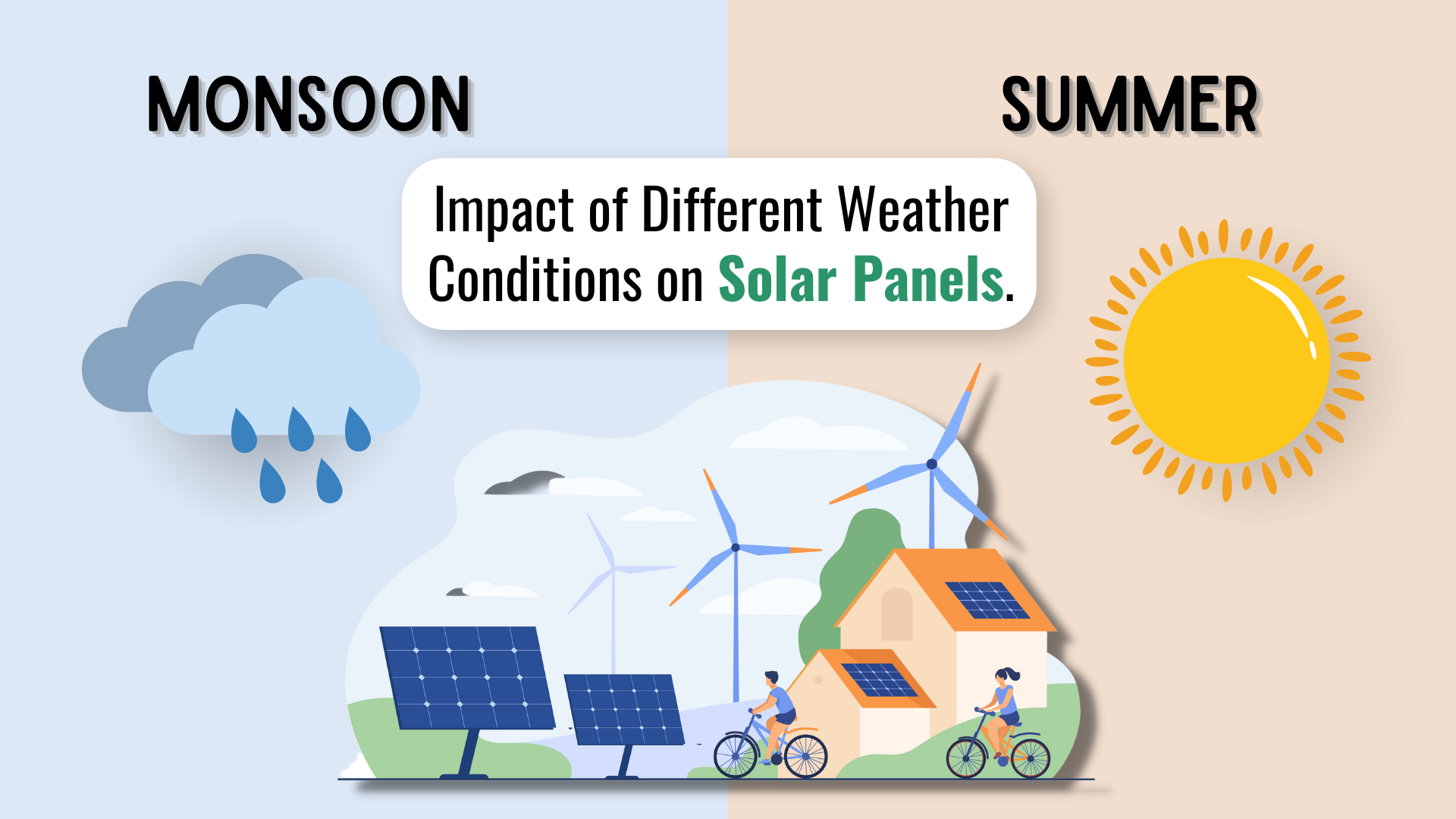

Impact of Different Weather Conditions on Solar Panels
Solar energy is an abundant source of clean energy. If used well, it can surpass the output from many conventional sources of energy at a much cheaper cost. solar panels are obviously affected by the amount of sunlight that they are exposed to, both by the number of hours’ sunlight and the intensity of the sun. Luckily, solar panels do continue producing energy, even when the sky is overcast, the panel is slightly shaded or covered by up to an inch of light snow. Some panels perform better in such conditions than others and our monocrystalline solar panels undoubtedly perform best in less than perfect conditions.
In this article, one will get to know about the impact of different weather conditions on solar panels.
Summer Weather
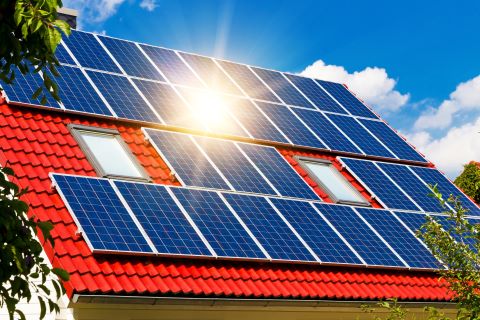

One of the key factors impacting the amount of electricity your solar panels produce is the temperature at which they operate. The best panels are designed to handle extreme variations in temperature (also known as thermal cycling) in both hot and cold climates. Misconceptions surrounding the weather effect on solar panels is high temperatures can increase the efficiency of the panels. As strange as it may sound, solar panels are more productive when temperatures are low. High temperatures reduce the power output of the PV cells due to voltage drop. Thus, a cool sunny day is a lot better condition for the optimal functioning of the solar panels.
Cloudy Environment
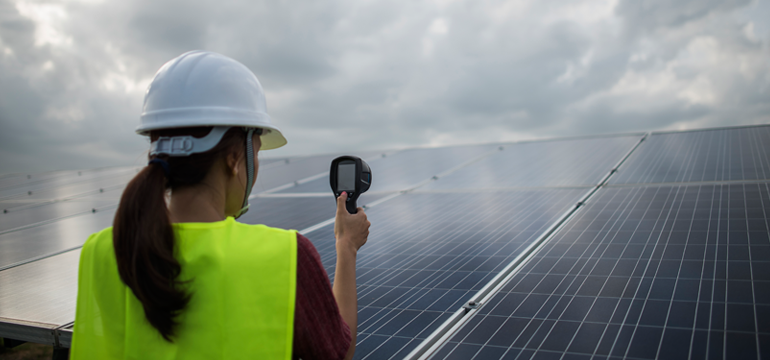

Contrary to popular opinion, solar panels still generate electricity on cloudy/rainy days or in foggy weather—they are just not producing as much energy as they do on bright, sunny days. On cloudy days, solar panels typically produce about 10% to 30% of their capacity. Since the PV cells depend on solar radiation for functioning, solar panels in cloudy weather tend to be slightly less productive as compared to sunny days. The solar panel cloudy day output also depends on how dense the cloud cover is. For instance, cirrocumulus or thin sheet-like clouds may not have much impact on the performance of solar panels. Meanwhile, on partly overcast days the performance of even the best solar panels for cloudy days can fall by 10 per cent to 25 per cent.
Winter Weather
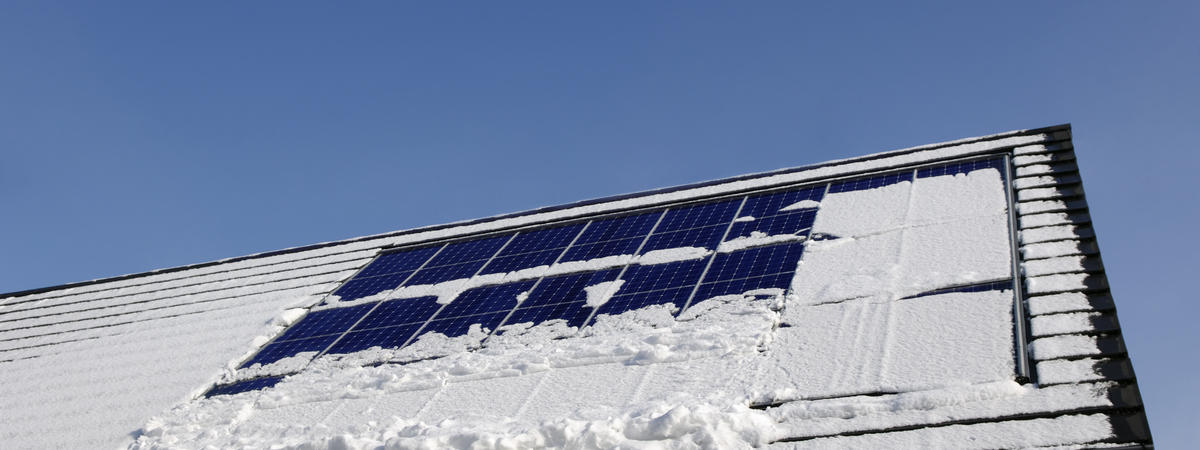

While a thick layer of snow can certainly affect the energy production of the PV cells, a bit of snow is not that bad for the panels as some sunlight can still pass through. Further, rooftop installations are usually done in a way that the snow slides off naturally. Surprisingly, the blanket of snow around the home can increase the solar energy generation as the radiation reflected from the snow acts as a mirror. This, in turn, increases the intensity of the radiation reaching the solar panels in winter.
Windy Environment


Although modern panels are designed to withstand winds up to 90 mph, poorly designed panels may not perform that well. Even when the system fails, the limiting factor is seldom the panels. In most cases, the problem is caused due to issues in the racking system or the roof where the panels are mounted. Dust and flying debris are other elements that can affect the panels in windy conditions. However, most solar panels are resilient enough to withstand rough weather conditions.
Lightning
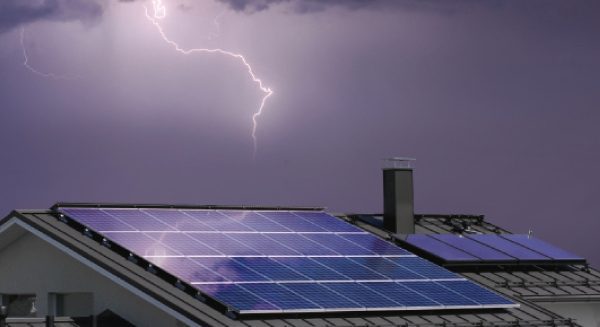

Conclusion
Most inclement weather won’t have a huge impact on your solar panels, so long as they are high quality and boast durability as one of their main attributes. Many top-rated solar panels have a proven track record of durability, degrading at a slower rate than others. In fact, Q CELLS guarantee a minimum power output of 83% after 25 years. Another thing that’s pretty great about durable solar panels is that they also protect the roof of your home from harsh weather conditions. Solar panels are built to hold a certain weight and snow/wind load, so the more durable your panels, the better they can withstand snow or hail.
Read More: How to clean your Solar Panels without Water

